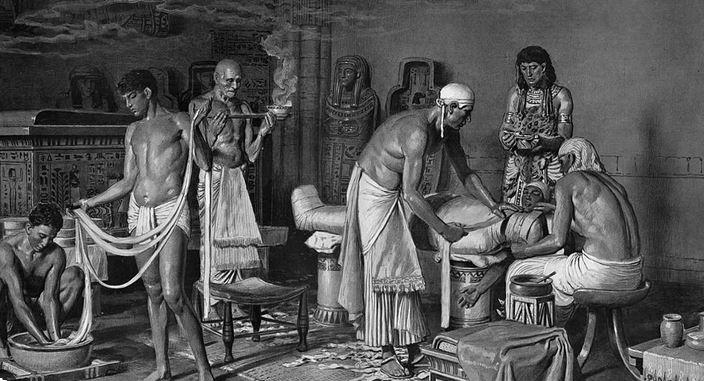The Therapists' Order

The Therapeutes were a religious and philosophical community in ancient Egypt that followed the teachings of Gnosticism and mystical spirituality. They lived in an order and pursued a life of ascetic renunciation, meditation, and intense religious practice. The term "Therapeutes" means "healers" or "caregivers" and refers not only to medical healing, but also to spiritual healing and the spiritual purification of the individual.
Origin of the Therapeutes
The Therapeutes are best known through the writings of the Jewish philosopher Philo of Alexandria. In his work De Vita Contemplativa (On the Contemplative Life), Philo describes a community of people living in a kind of monastery near Alexandria. This community, as Philo emphasizes, had religious and philosophical parallels to both the Pythagoreans and the Essenes, a Jewish community known for their strict asceticism and religious practice.
Lifestyle of the Therapists
The therapists led a life of contemplation and meditation, striving for a state of inner purity. They lived in seclusion, often in simple cells or huts, and engaged in spiritual exercises to heal their souls and deepen their connection with God. Their lifestyle was strongly influenced by the ideas of Platonism and Pythagoreanism, with a strong focus on purifying the soul and renouncing material values.
Religious Practices of the Therapists
Contemplation and Meditation: The therapists spent considerable time in prayer, meditation, and spiritual contemplation. Their spiritual practice aimed to free the soul from the shackles of the physical world and establish direct contact with the divine source.
Asceticism: The ascetic lifestyle was a central component of their practice. The therapists lived simply, abstaining from worldly pleasures and striving for a purer, higher form of life.
Study of sacred scriptures: Therapists studied not only Jewish and Greek philosophy, but also religious texts they considered sacred. Philo noted that the therapists had a strong affinity with the writings of the Old Testament and the teachings of Moses.
Healing and spiritual care: The name "therapists" suggests that the members of the community also played a healing role, not only in the physical sense, but primarily in the spiritual realm. They considered healing the body and soul an integral part of their practice.
Community and life in seclusion: The therapists lived in small, secluded communities dedicated to communal life and spiritual practice. Their communities were highly disciplined and had clear rules for daily life and spiritual practice.
Philo of Alexandria and the Therapeutes
Philo of Alexandria (c. 20 BC – 50 AD) describes the Therapeutes as an ideal example of the contemplative life. In his work De Vita Contemplativa, he presents the Therapeutes as a community living the life of a "true philosopher" and describes their rigor, their focus on spiritual discipline, and their orientation toward a life of soul purification and self-realization.
Philo sees the Therapeutes as a spiritual community that is not only philosophically pure, but also a model for a way of life closer to the Godhead. He describes their practice as a form of philosophy and religion that encompasses the pursuit of God and inner harmony with the world.
Connection to Other Spiritual Traditions
The Therapeutics are closely connected to other mystical and ascetic traditions that existed in the ancient world, including:
The Essenes: A Jewish sect that had similar ascetic practices and was known for its strict discipline. They also lived in seclusion, awaiting the coming of the Messiah.
The Pythagoreans: A philosophical school that also emphasized ascetic practices and had a strong focus on the purification of the soul and the influence of numbers and mathematics on the universe.
Platonism: The influence of Platonism can be seen in the idea of purifying the soul and striving for a higher, spiritual reality that transcends the world of material appearances.
Importance of the Therapeutics
The Therapeutics had a significant influence on the development of early Christian monasticism and the monastic tradition. Their practice of asceticism, meditation and community lives on in many religious and philosophical traditions, especially in the Christian monastic community and the later monastic movements who developed a similar way of life.
The Therapeutes contributed to the spread of ideas about the soul, spiritual purification, and the pursuit of God, which influenced many other spiritual movements, both in Judaism and Christianity. Their philosophical and spiritual practice demonstrates a strong integration of Greek philosophy and Jewish mysticism, making them a unique and important community in religious history.
Conclusion
The Therapeutes were a religious community living near Alexandria in ancient Egypt, characterized by a life of ascetic discipline and spiritual contemplation. They sought connection with the divine through meditation, purification of the soul, and the pursuit of wisdom. Their teachings and practices influenced not only Jewish and Christian mysticism, but also the early monastic traditions in Christianity. They are among the early precursors of the monastic life later found in Christian monasteries.

